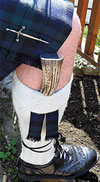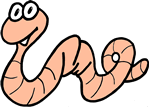The Scots phrase, a snell wind, appears in one of the books I’m reading at the moment, and as I hadn’t come across it before it mystified me a bit. It’s some kind of wind, but what kind?
According to the OED, snell is a Scots and Northern English word meaning:
1. (of a person) quick in movement or action; prompt, smart, active, strenuous
2. keen-witted, clever, sharp, acute, smart
3. severe, sharp, unsparing
4. (of weather) keen, bitter, severe
5. grievous, heavy, stinging; rigorous; painful
6. shrill, clear-sounding
So it seems that the most likely meaning for a snell wind is a bitter one.
Snell comes from the Middle English snell (quick, fast) from the Old English snel(l), from the Proto-Germanic *snellaz (active, swift, brisk). It is cognate with the German schnell (quick, swift, active), the Italian snello (quick, nimble), the Old French esnel/isnel (snell), and the Occitan isnel/irnel (snell), the Old Norse snjallr (skilful, excellent), the Swedish snäll (nice, kind, kind-hearted, decent, clever, benignant) and the Danish snild (clever) [source].
A related word is snellness (sharpness, keenness).

